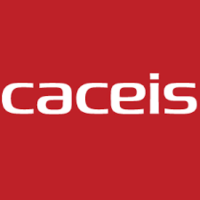On 26 October the European Commission (EC) adopted a legislative proposal on instant payments in euro, fulfilling its commitment to the 2020 Retail Payments Strategy for the European Union (EU).
This proposal has been adopted by the EU Parliament on February 7th, 2024. The full text of the regulation can be found here.
Main Measures
-
Generalization of Instant Payments
The regulation aims to generalize the instant payment scheme for euro payments in the EU. As a reminder, an instant credit transfer is supposed to be executed regardless of the day or hour and the money must arrive into the recipient’s account within ten seconds. The payer should be also informed within ten seconds of whether the funds transferred have been made available to the intended recipient.
Member states whose currency is not the euro will also have to apply the rules, where the accounts already offer regular transactions in euro, after a longer transition period. There will be a special derogation from making the payment within ten seconds for such accounts outside business hours, given possible concerns about access to liquidity in euros.
-
Identity Check service
To ensure customer safety, PSPs (Payment Service Providers) are mandated to implement robust fraud detection and prevention measures, preventing misdirected credit transfers due to fraud or errors. PSPs operating within the EU must provide identity verification services immediately and without additional charges. Such service checks the ‘match’ between the account number ‘International Bank Account Number’ (IBAN) and the name of the payment beneficiary. PSPs need to alert the payer of any discrepancies that may suggest fraud or error before the transaction is authorized.
If a PSP does not fulfill its fraud prevention duties and this results in financial damage, a client can ask to be compensated by the service provider.
-
Charges to be the same as “non-instant “credit transfers in Euro
Charges applied by a PSP concerning instant credit transfer transactions in euros cannot be higher than the charges applied to “non-instant” credit transfer transactions in euro.
-
Additional Customer Protection Rules
Customers are empowered to set maximum amounts for instant credit transfers in euros (maximum amount per transaction or day) to mitigate fraud risks.
-
AML and Sanctions Screening
The new regulation imposes screening requirements on payment service providers. PSPs offering instant credit transfers should also verify whether any of their clients are subject to sanctions or other restrictive measures.
PSPs providing instant payments in euros are required to follow a harmonized approach to EU sanctions. They will no longer be required to screen transactions against sanction lists when processing the transaction, which will reduce the rejection rates. However, they must verify at least once a day whether any of their customers are designated persons or entities subject to EU sanctions related to money laundering and terrorist financing.
Timeline implementation:
The new rules enter into force 20 days after publication in the EU Official Journal. The timetable foresees following delays following the entry into force of the regulation:
- PSPs located in the euro area will have 9 months following the entry into force to be ready to receive instant credit transfers in euro with the same level of charges and to implement the sanction screening, and 18 months to be ready for the sending of instant payments, and for the IBAN & Payee name verification.
- For PSPs located in the EU outside the Eurozone, the delay will be 33 months for the receipt of instant payments and the sanctions screening, and 39 months for the sending of Instant payments and the IBAN & Payee name verification.
- Payment Institutions and EMI (Electronic Money Institutions will receive a delay of 36 months for the implementation of the regulation. This longer delay is justified by the fact that currently, they do not have direct access to the instant clearing systems.
Conclusion
The proposed EU regulation is a step in the right direction for developing a pan-European market-based payment solution.
For treasurers, this will be beneficial, because once the regulation is applicable, for their urgent payments in euro, including the treasury payments, they will no longer have to pay urgent payment charges.
I also expect that this will boost the payment initiation services (PIS) under the PSD2 provisions on Open Banking, as it will enable an immediate confirmation of the availability of funds, while currently providers of PIS are for on the availability of funds the only entitled to a “yes” or “no” confirmation from account servicing payment service providers (ASPSP).
However, there will be large technical challenges for the PSPs to overcome.














